

|
The annual board game award season is upon us. The committee members for the Spiel des Jahres have just recently announced their nominees for game of the year from the previous year, and the committee members for the International Gamers Award will soon follow suit, among many others. Youíll be inundated with recommendations from people whose opinions youíve come to trust and rely upon. But before all that gets too far under way, itís time first for an award thatís neither brought to you by a committee nor by someone whose opinion you necessarily trust. Itís my very own NYC Gamer award. Established in 2007 with my Games of the Years article, it has a long and distinguished history of honoring the best game of the year. Then again, the retroactive awards date all the way back to 1876, so in a way, itís the longest running award in the industry (with a mere 83 year gap between Crokinole receiving the 1876 award and Diplomacy receiving the 1959 award).
I currently own 20 games and expansions from 2008, down from 28 games and expansions owned from 2007, but right on par with 19 from 2006 and 21 from 2005. Many people seem to lament 2008 as a weak year for game releases, but I beg to differ. I actually get the impression that every year people claim that the current year is a weak year with a relatively poor crop of new games. Looking back at my collection grouped by the years that each game was released, I can easily find great games from every year going all the way back to 1995 (with the exception of 1996 for which I really donít have any wonderful games yet). And of course there are plenty of fantastic games from before 1995 (e.g., Die Macher, Survive, Extrablatt, Dune, Um Reifenbreite, Crokinole, Canít Stop, Liarís Dice, Igel Argern), just not necessarily from every single year. So with that being said, it was difficult to choose a favorite game from 2008.
I was tempted by the complexity of Le Havre, the paranoia of Battlestar Galactica, the silliness of Red November, the quirkiness of Krakow 1325, the accessibility of Pandemic, the card play of Scripts & Scribes, the humor of Say Anything, the calculations of Planet Steam, the face-offs of Ubongo Das Duell, the reimagining of Chicago Express, the novelty of Dominion, the spatial auctions of Metropolys, the dexterity of Sorry Sliders, the route building of Cavum, and even by the evilness of Galaxy Trucker: The Big Expansion. Iíve never given the award to an expansion before, but the Galaxy Trucker expansion really impressed me (along the same lines as the Mr. Jack Extension from 2007). But in the end none of those contenders emerged victorious.
In the spirit of the Spiel des Jahres narrowing the contenders to the Top 5 before eventually selecting the Best Game, I'll start by upholding that grand tradition. In alphabetical order, my Top 5 games of 2008 are: Chicago Express, Ghost Stories, Krakow 1325 AD, Le Havre, and Planet Steam. It's a very solid group of great games as far as I'm concerned and all games that I strongly recommend.
And the Nominees are...
Chicago Express was designed by the nebulous Harry Wu and published by Queen (originally published by Winsome Games in 2007). It packs an incredible amount of game into such a small amount of time. I don't generally think of 60 minute games as heavy, intense, or brain-burning, but Chicago Express somehow manages to squeeze all of those things into its quick playing time. It's one of the densest games I've come across, where your faced with a quick and relentless succession of difficult decisions. However, thankfully it's not complexity of rules that makes the game difficult, not by a long shot, but rather it's one of those cliched rule sets that is easy to learn yet hard to master. Every turn your decision is simply whether to put a train company share up for auction, expand a rail line, or place a development marker on any space. But even once you get past this hurdle, you're immediately faced with deciding how much to bid in the auction, or where to expand the rail line, or which space to develop. And all of this ignores the need to constantly evaluate the interests of your opponents and predict their moves so that you can factor their anticipated behavior into your course of action. Chicago Express belongs in the Top 5 because its density of decision-making is both admirable and enjoyable.
Krakow 1325 AD was designed by Peter Struijf, published by Geode Games, and beautifully illustrated by Melchior van Rijn. I first heard about Krakow from the Boardgame News Preview published back in September 2008. The game sounded intriguing, but I didn't give it a second thought until I came across the designer's series of articles about his experience at the Essen game fair. I've collected those articles on my website so you can easily find all of them in one place. As I mention in my introduction there, Peter's vivid and engaging writing style is marvelous. These articles really captured my attention and got me interested in Krakow, so much so that I bought it on a whim. I'm certainly happy I did. I've played it a number of times now and it gets better and better with each play, which is a welcome change of pace from many games that wear out their welcome with repeated plays. Krakow is a team trick-taking area majority game. Let's break that down because you don't often see all of those mechanics combined into one game. Krakow is a game for specifically four players, who divide into two teams of two. Krakow is a trick-taking card game along the lines of countless predecessors (e.g., Hearts, Tichu). Krakow is an area majority game where you score points at intervals for having the majority of cubes in a region (e.g., El Grande). Most importantly, underlying all of this, is the fact that a single person is declared winner at the end of the game, not a team. Each individual's score is the sum of their team score and the score of their secret identity, which is only revealed at the conclusion. You score points for your team based on securing majorities in areas on the board and you score points for your individual secret identity based on the color of the tricks that are successful (because each person is randomly assigned a secret color at the beginning of the game). This is really the meat of the game because it becomes a balancing act of working with your partner and betraying your partner at the right moment when it is most advantageous to yourself. There is significant tension between winning tricks for your team that allow the placement of cubes on the board, and supporting tricks of your individual secret color regardless of whose team it helps. There will come times when you want to undermine a trick led by your partner because its not your color and there will come times when you decline to wholeheartedly oppose a trick led by your opponents because it is your color. However, if you focus too much on your self-interest then your team is unlikely to function very well and you'll end up getting crushed. Krakow belongs in the Top 5 because it is a quirky and inventive game that has pleased everyone to whom I've taught it (and I haven't even told you about the gorgeous and humorous artwork).
Le Havre was designed by Uwe Rosenberg and published by Lookout Games. This is the much anticipated sequel to Agricola, which I think gave it the same hurdle that confronted Mammoth Hunters when it was Alea's sequel to Puerto Rico. Nothing would be seen as measuring up to Puerto Rico, so regardless of the individual merits or faults of Mammoth Hunters, it was bound to face a serious uphill battle in the public eye. Given this obstacle, Le Havre has been surprisingly well received, and with good reason -- It's better than Agricola. That may be unfair since some people will certainly prefer Agricola, while others will prefer Le Havre, and still others won't enjoy either of them, but I greatly prefer Le Havre. Iíve never been especially enamored with Agricola, which Iíve always thought is good (with the drafting variant), but not great. I think the plethora of Occupation and Minor Improvement cards in Agricola is more of a distraction than anything else, and I feel like the short time span of the game coupled with the incessant harvest demands makes it a frustrating experience of trying to build an engine in artificially cramped quarters. Le Havre on the other hand feels more like a wide open playground, and while there are vaguely similar feeding demands in Le Havre, theyíre not as overwhelming or crushing as in Agricola because you can always spend money instead of food, and you can always take a loan for more money. Importantly, loans in Le Havre are not nearly as devastating as Begging cards in Agricola so being unprepared for a harvest or two in Le Havre is not a huge problem. The number of options, turns, resources, and methods for creating victory points in Le Havre is huge, which gives the game its wide open feeling. The downside of all this openness is that the game can overstay its welcome when playing with too many players or with inexperienced players, but with 3 people who have played the game before, it truly shines. It's marvelous to see how your choices at the beginning are narrow and focused, and slowly but surely expand. The playing area unfolds to cover the table as the buildings are built or purchased, and the options increase inexorably. The progression feels very natural. Le Havre belongs in the Top 5 because its a wide open playground that the players build for themselves during the game.
Planet Steam was designed by Heinz-Georg Thiemann and published by LudoArt. Hopefully it will eventually be republished by a U.S. publisher -- I'm looking at you Z-Man. Planet Steam was far and away my surprise hit of BGG.CON in 2008. It wasnít even on my list of games to try at BGG.CON, which is impressive considering the fact that the list had 129 games on it, far more than I could ever have hoped to play at the convention. Thankfully someone else suggested trying Planet Steam and we found someone to explain the game, making learning this fairly complex economic game a breeze (compared to what it could have been at least). Since that time, I've been left pondering the game for months, and the fact that I still remember it is a testament in and of itself. I've tried countless new games in those months, many of which are forgettable and never given a second thought. Planet Steam on the other hand has stuck with me. It's inclusion in the Top 5 is somewhat dubious since I've only played it the one time and it may not live up to future plays, whether because it could ultimately be repetitive or unbalanced. Nonetheless, given the impression that sole play made on me, I'm fairly confident it belongs in the illustrious company here. Planet Steam is a deep and fairly long economic game with an extremely interesting supply-and-demand resource market (a la Power Grid). I've always said that while I don't enjoy Power Grid, I liked how the resource market worked in the game, and had always hoped to find another board game that employed a similarly interesting supply-and-demand resource market. Trying to time the ebb and flow of prices in Planet Steam is an engaging challenge. The market was particularly interesting because unlike Power Grid, the game itself doesnít inject new resources into the market. Only the players sell resources into the market, so unless someone gets around to producing a resource, itís guaranteed to be in short supply or nonexistent. The prices also seem to fluctuate a lot more than in Power Grid, so resources can go from being almost free to being extremely valuable, and then back again, over the course of the game, depending on what the players are producing and selling. Timing is key as the windows of opportunity in this game are short-lived and if you donít seize them, then your opponents likely will, and theyíll make a killing in the process. Planet Steam belongs in the Top 5 because it is extremely engaging, drawing you in and making the hours fly by.
And the Winner is...
Ghost Stories stands head and shoulders above the contenders (designed by Antoine Bauza and published by Repos; available through Asmodťe in the United States). Ghost Stories is the best cooperative game I've ever played and it's a very crowded field these days, what with the recent release of Pandemic, Red November, Space Alert, and the semi-cooperative Battlestar Galactica, all being added to the previous bulwarks of the genre Lord of the Rings and Shadows over Camelot. Cooperative games have come a long way in recent years as more of them are published and designers experiment with a wider variety of elements in creating their cooperative designs. I'm sure cooperative games still have a long way to go in their development with many more innovations and twists, but for the time being, I am more than satisfied with Ghost Stories. I've played it 23 times already since its release last October and have enjoyed every play, even those in which my fellow Taoist priests and I have been mercilessly crushed by Wu-Feng and his minions. Ghost Stories is renowned for its difficulty, which has been off-putting to some, but as someone who prizes the challenge of Survival Games such as Antiquity, Age of Steam, and La Citta, the extreme difficulty of Ghost Stories is one of its merits, not one of its flaws. I appreciate the challenging nature of Ghost Stories and other Survival Games because it rewards repeated plays. It rewards revisiting the game time and again despite repeated failure in order to learn where you went wrong and what you can improve upon next time. You might go bankrupt in Age of Steam or drown in pollution and graves in Antiquity, but if you keep at it, you'll learn to conquer those obstacles. The same goes for Ghost Stories where you'll eventually find yourself breezing through the game after many failed attempts. You might think this would mean you would never want to play the game again, but fortunately the game has 4 difficulty settings, ranging from Initiation, to Normal, Nightamre, and finally Hell. It's amusing to see people's reaction when you tell them after they've lost horribly that they were playing on the Initiation difficulty level. Just as with Pandemic, the inclusion of a variety of difficulty levels is a very wise move in any cooperative game since it allows players to adjust the challenge based on the experience of the players.
I'd be remiss if I didn't mention another significant advantage of Ghost Stories, which is the way it wonderfully scales to accomodate 1 to 4 players. All of the player counts work remarkably well, and as someone who's picky about that sort of thing, I greatly appreciate a rare gem like Ghost Stories that can work with many different size groups. I should also mention the Guardhouse mini-expansion for Ghost Stories, which I think adds a nice element of variety to the experience. Unlike most mini-expansions, which either add nothing meaningful to the game (e.g., Ticket to Ride Mystery Train or Settlers of Catan Fisherman) or actively harm the game (e.g., Saint Petersburg Banquet), the Guardhouse mini-expansion for Ghost Stories is the first of its kind that I've found to actually improve the game. It adds a tenth village tile to the game, which increases the variety of the board layout as you remove a random village tile from each game, and also adds five new cards to the deck of ghost cards (similarly with five random cards removed). Most importantly, the new tile and cards fit seamlessly into the mechanics and theme of the game. This gives me great hope for the upcoming White Moon full expansion for the game, previously announced on Boardgame News.
Ghost Stories deserves this fictitious award for all of the reasons explained above but most importantly because of the mood and feeling of the game, which are difficult to put into words. Ghost Stories is a game in which the players represent Taoist priests defending a village from invading ghosts. The ghosts are attacking from all sides. The village and the players are surrounded. You feel this when you're playing. You feel trapped and surrounded. You feel like you're running from place to place putting out fires and addressing the most urgent emergency. The assault of ghosts is relentless and you feel the relentless attack as the ghosts keep coming, filling in the places vacated by the previous ghost that you just defeated. It reminds me of the scene in Song of Ice and Fire where the Night's Watch is surrounded and attacked on the Fist of First Men. The reference may not mean anything to many of you (in which case I recommend reading George R.R. Martin's Song of Ice and Fire series), but in that case the game may remind you of a scene in a different movie or book where the characters were surrounded and outnumbered by a relentless foe. This game is an uphill battle. You're faced with a Sisyphean challenge. It's incredibly difficult, but that makes victory all the sweeter.
Categorical Denial
I've never been a big fan of numerous categories of awards, preferring instead the simplicity and straightforwardness (if not the difficulty and agony) of selecting a single Game of the Year. However, if I were to select games worthy of honor in particular categories, then I would be inclined to mention Ubongo Das Duell as the best exclusively two-player game, Galaxy Trucker: The Big Expansion as the best expansion, and Scripts & Scribes as the best card game of 2008.
Ubongo - Das Duell is a great two-player twist on Z-Manís puzzle-solving brain bender. Itís nice to be pitted against your opponent on the same puzzle for once and itís also nice to have a simple and rational scoring system for once, both things that are missing from other versions of Ubongo. Itís also a wonderfully small box so it fits perfectly on the shelf. Hopefully the domestic printing of Das Duell will soon arrive so you wonít have to import it or say the name with poor German pronunciation.
Galaxy Trucker: The Big Expansion is more of the same, which is a very good thing for fans of Galaxy Trucker. Itís more tiles to build your ship, more aliens to man your ship, more adventure cards and rough road cards and new evil machinations cards to blow your ship apart. Itís not revolutionary, but thatís fine by me. I love the base game and have played it over 20 times now, and I love playing with the expansion even more. I donít expect to play without the expansion ever again, except when teaching the game to new players. I particularly like that The Big Expansion increases the difficulty level of the game significantly. Iíve gone from always making 80 to 90 credits, to now making 10 to 20 credits. Iím looking forward to slowly building myself back up as I become more familiar with the new tiles and cards. I really enjoy the increased challenge of the game with The Big Expansion. I heartily recommend it to any fans of Galaxy Trucker, and I heartily recommend to avoid it if you didnít enjoy the base game because it certainly doesnít alter it significantly. Itís more of the same, which is fine by me!
Scripts & Scribes was designed and self-published by Steve Finn. It looks unassuming and ordinary. It wasn't on my radar whatsoever. It's now one of my favorite card games ever, and I'm eagerly looking forward to the reprint. I've always liked, but not loved, card games like Lost Cities, Odin's Ravens, and Balloon Cup. They're a good idea, but not quite satisfying. The idea of a unique and novel card game with staying power to play in 20 minutes with your significant other has proven elusive. I've ended up turning to small board games in order to get enough decision-making to be satisfying in that time frame, such as Aton, Hey That's My Fish, and Fjords, but Scripts & Scribes is a card game with decision-making and tension galore. I won't go into great detail, but essentially you're trying to get the majority of cards in various colors, and each turn you draw three cards, allocating one to yourself, one to your opponent, and one to a common pool that will be auctioned off at the end of the game. You draw the three cards one at a time, making the decision of where to allocate before seeing the rest of the three, making it a tense and agonizing decision. I highly recommend this card game for anyone who has enjoyed the Kosmos line, but hasn't found them to pack quite enough of a punch.
Post Script
If all of the above has been a bit too much gushing about the wonders of the games released in 2008, perhaps I should point you towards a few previous articles where I significantly temper my enthusiasm, in case you're looking to prune your shopping cart or wish list. Towards the end of 2008, I wrote a pair of articles, November Madness: Part 1 and November Madness: Part 2, which apparently were so critical of various 2008 releases that they prompted a commenter to suggest that I take a vacation from board games because I didn't seem enjoy most of the games I'd played. It was a good point, and well-taken, not that I've taken the suggested vacation, but there are plenty of duds in my mind from last year if you're looking for the antithesis of this column. Speaking of which, there's always my A Penny Saved article if you're looking for something slightly less upbeat than this awards announcement.
With that being said, let's end on a happy note with the induction of Ghost Stories into my Game of the Year pantheon. Below are all of the past winners since 1995:
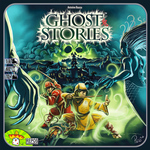
2008 |
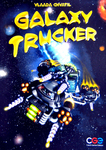
2007 |
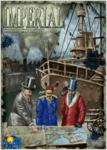
2006 |
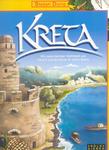
2005 |

2004 |

2003 |

2002 |
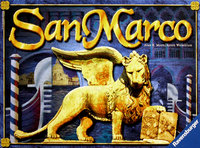
2001 |
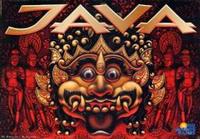
2000 |

1999 |
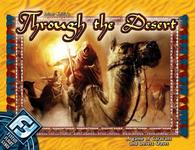
1998 |
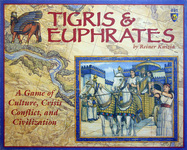
1997 |
No Award Given
1996 |
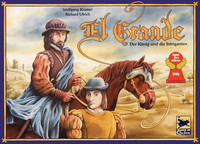
1995 |
(See Boardgame News for an edited version of this article plus additional comments on it)